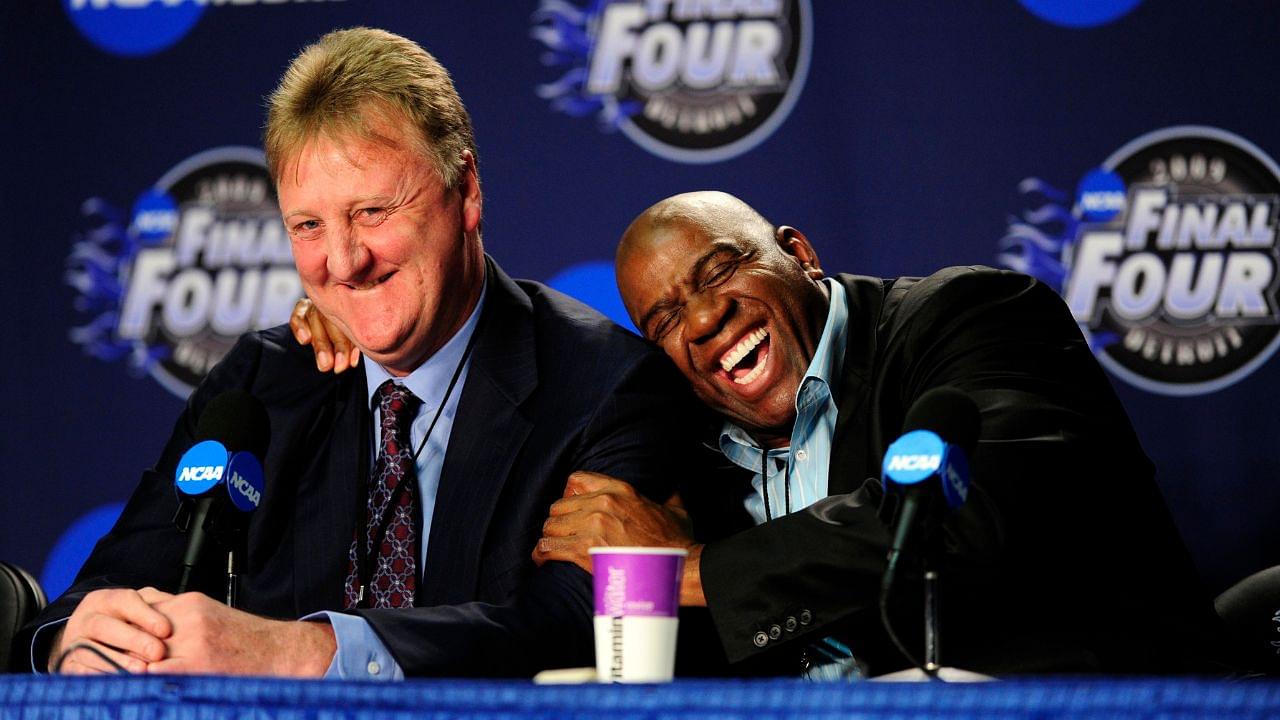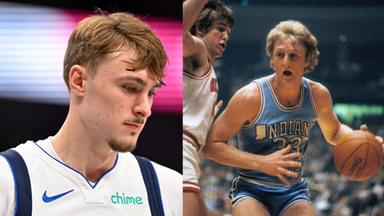The firing of NBA championship-winning head coach Paul Westhead from the Los Angeles Lakers in 1981 became a franchise-defining one. Despite the eventual positive impact of the change, the decision was initially met with resistance from both, the supporters and several players. They blamed a young Magic Johnson for the departure of the coach and even turned their back on the point guard for a short period. With time, the friction reached a point where even his rival, Larry Bird felt bad for him as revealed in the book When The Game Was Ours.
Advertisement
After a 7-4 run at the start of the 1981/82 season, the Lakers management parted ways with Paul before hosting the San Antonio Spurs at home. The match turned into a nightmare for Magic as the local fanbase united to boo him throughout the game. “They’re blaming me for this?” the teary-eyed 6’9″ star asked his teammate Michael Cooper, expressing his astonishment at the happenings.
Alongside the disgust from the Lakers’ faithful, the lack of support from the team’s bench made the Michigan-born’s night an unforgettable one. “The worst part about it was my teammates,” Johnson mentioned. He further added, “They hung me out to dry. None of them backed me up. Coop was the only guy”.
His triple-double of 20-16-10 on that night in a 136-116 home win was seemingly not enough to win everyone over. It taught Magic a valuable lesson about the NBA as he highlighted, “It made me realize who I was dealing with”. “I thought, ‘Okay, I guess this is what they mean when they say it is a business,'” the 5x champion stated.
In the weeks following that, the misery only increased for Johnson as he was unable to alter the scenario with his performances. The uncontrollable yet growing frustration around the situation even made Larry Bird empathize with the Lakers guard. The Boston Celtics legend mentioned, “I kinda feel bad for him,” showcasing his concern for his rival.
Why was Magic Johnson blamed for the departure of Paul Westhead?
Westhead’s tactics focused around Kareem Abdul-Jabbar was a source of frustration for a young Magic. While the latter wanted a fast-paced offense, the head coach remained fixated on continuing as a half-court team. None of the parties was willing to sacrifice as the team’s performance on-court suffered in the end.
The entire dynamics used to frustrate Johnson as he candidly revealed it once to Cooper. “I remember going out and asking, are you alright? He said ‘Coop man, I can’t play this way. We don’t walk up, we run up…’ Magic wanted to play the way he’s supposed to play,” Michael recalled. The tension only rose with time, before Magic requested a trade to leave the LA side.
After a crumbling start to the season, the management backed the player as Pat Riley replaced Paul as the head coach. Thus, many suspected Johnson’s threat to leave the City of Angels as a major contributor to the change. Eventually, though, it transformed the entire organization as the Lakers won five championships in the 1980s.








